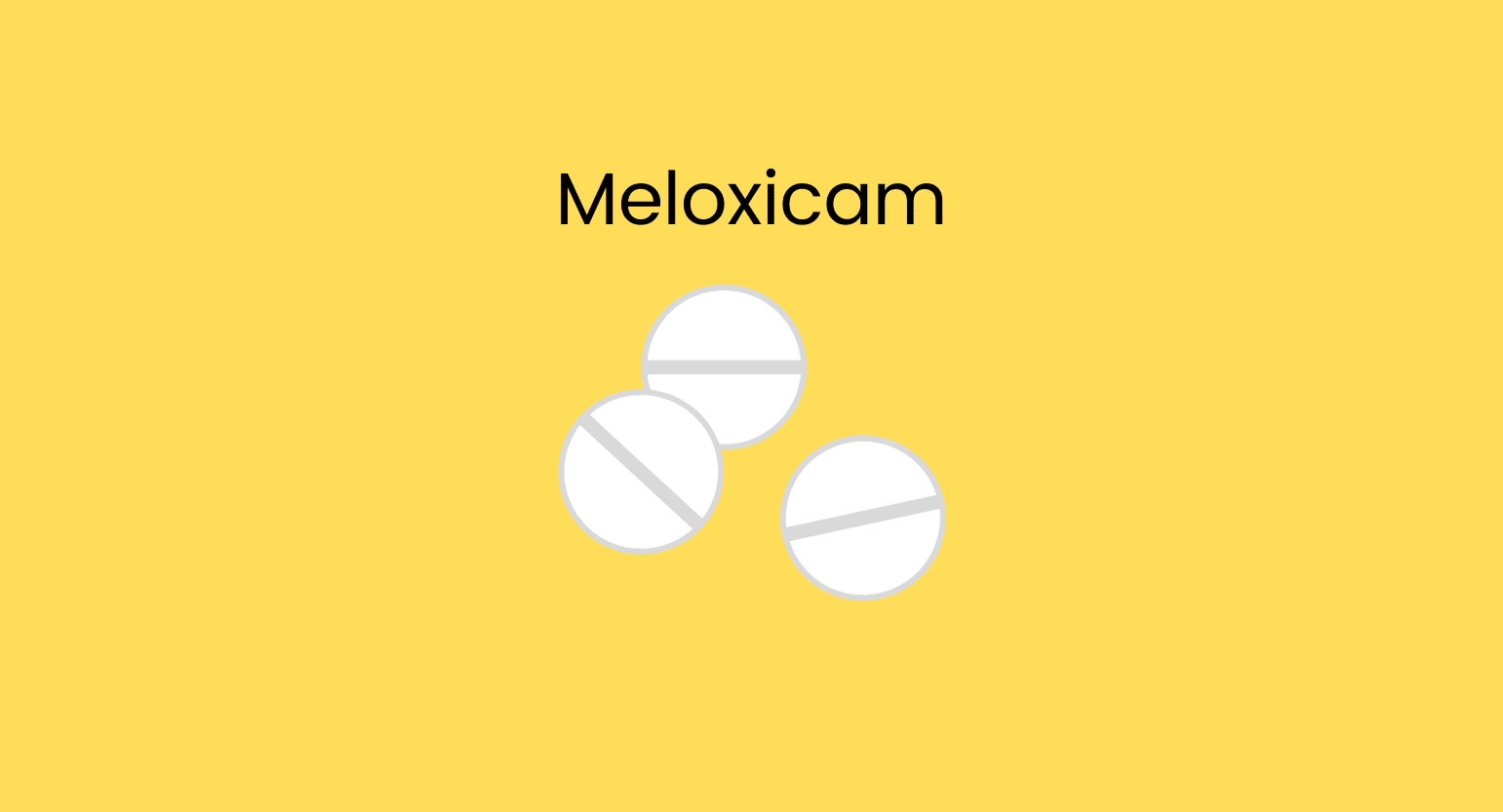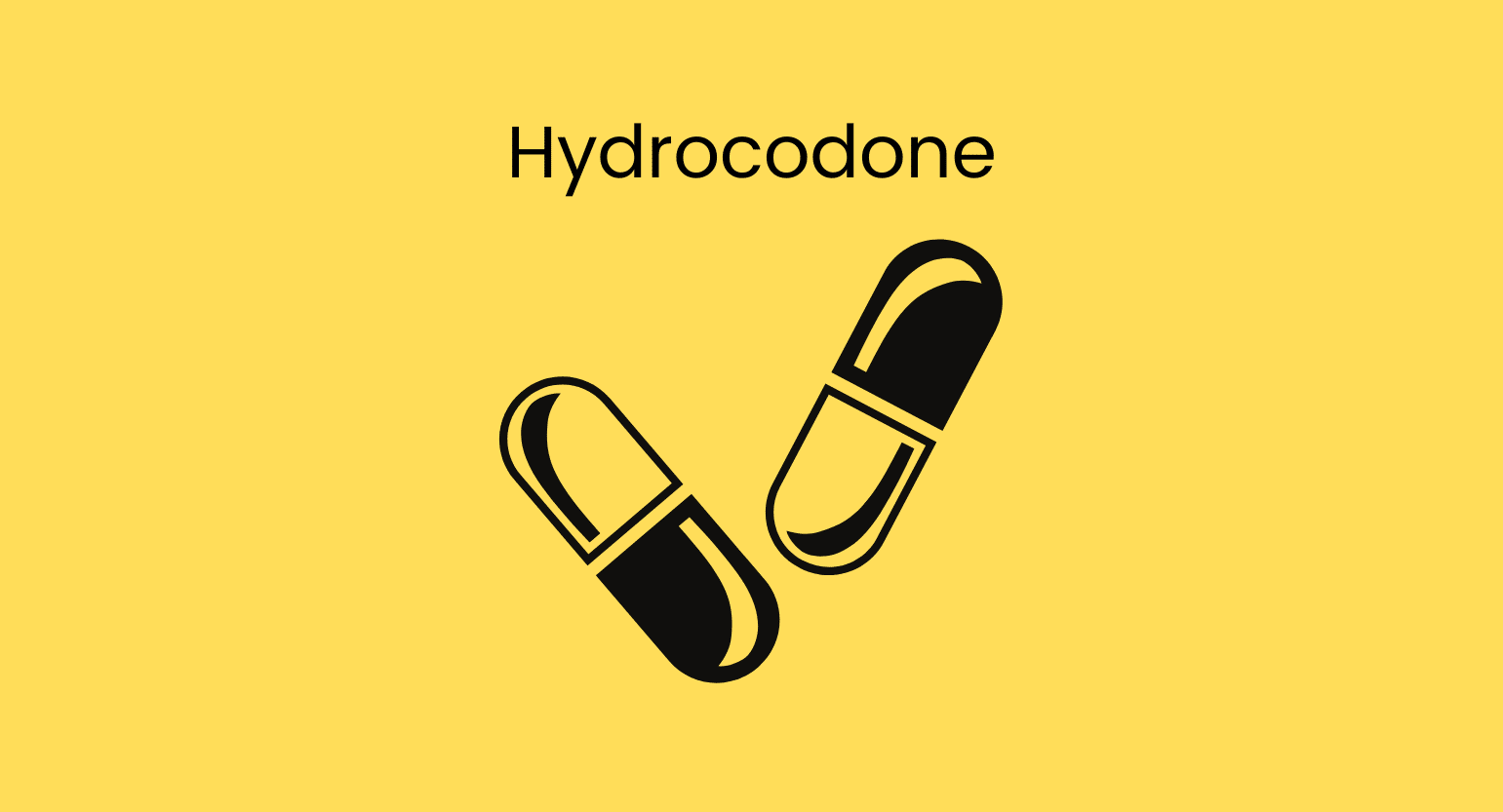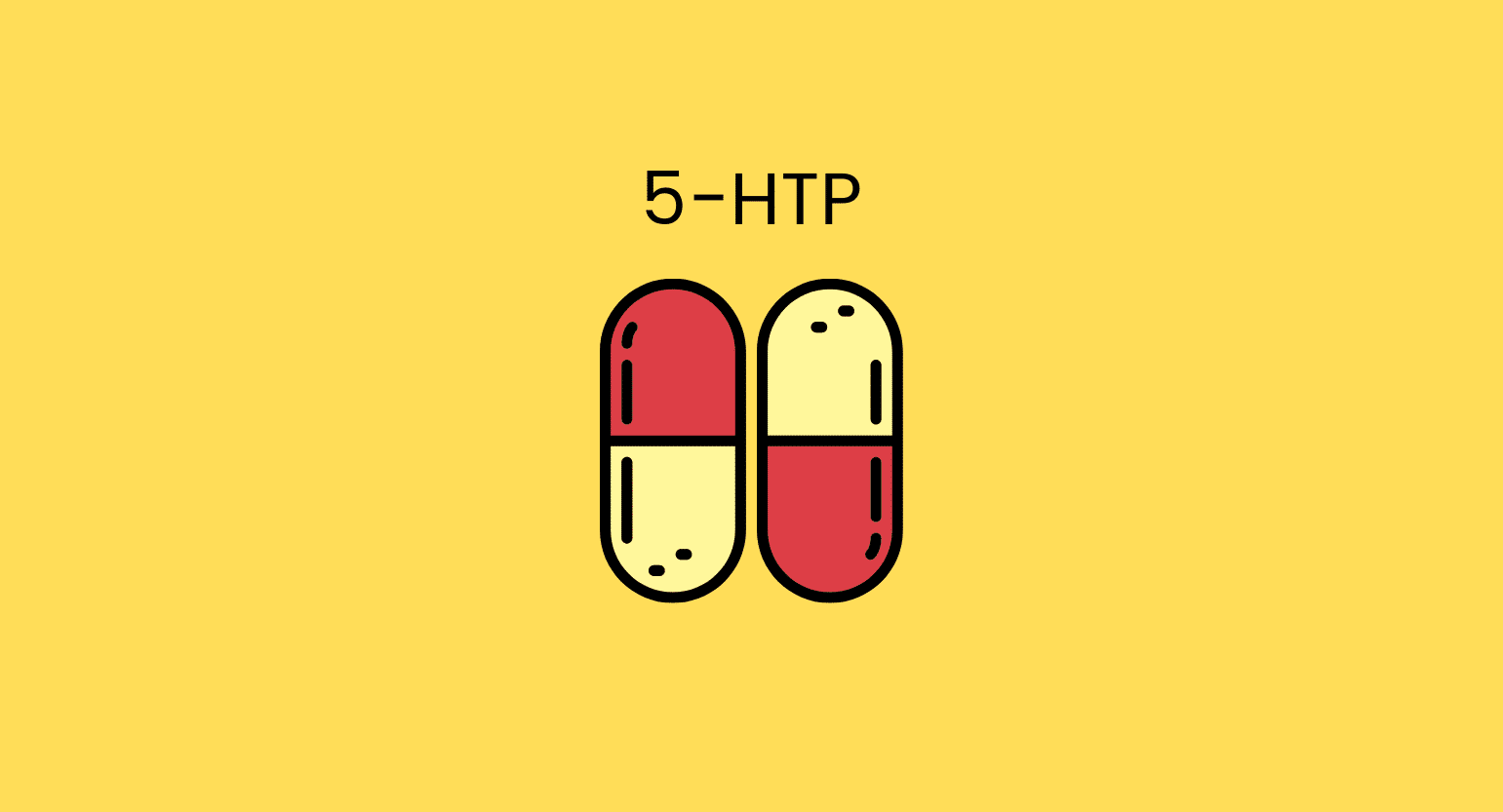Does Kratom Interact With Wellbutrin?
Yes, kratom is likely to interfere with the metabolism of bupropion and could lead to severe side effects. The more often you combine these substances, the higher the risk.
Both kratom and bupropion are inhibitors of the CYP2D6 enzyme; kratom also inhibits CYP3A4 and CYP2D6 to a lesser degree [2,3].
This effect can lead to higher plasma levels of bupropion and its metabolites and kratom. This, in turn, may cause the compounds to accumulate within the body at dangerous levels, prompting an increased rate of adverse effects, toxicity, and overdose.
Antidepressants like Wellbutrin are usually taken daily, making the risk of accumulation in the bloodstream more imminent. Also, as with other antidepressants, mixing bupropion and alcohol increases the risk of adverse effects [4].
Wellbutrin Specs
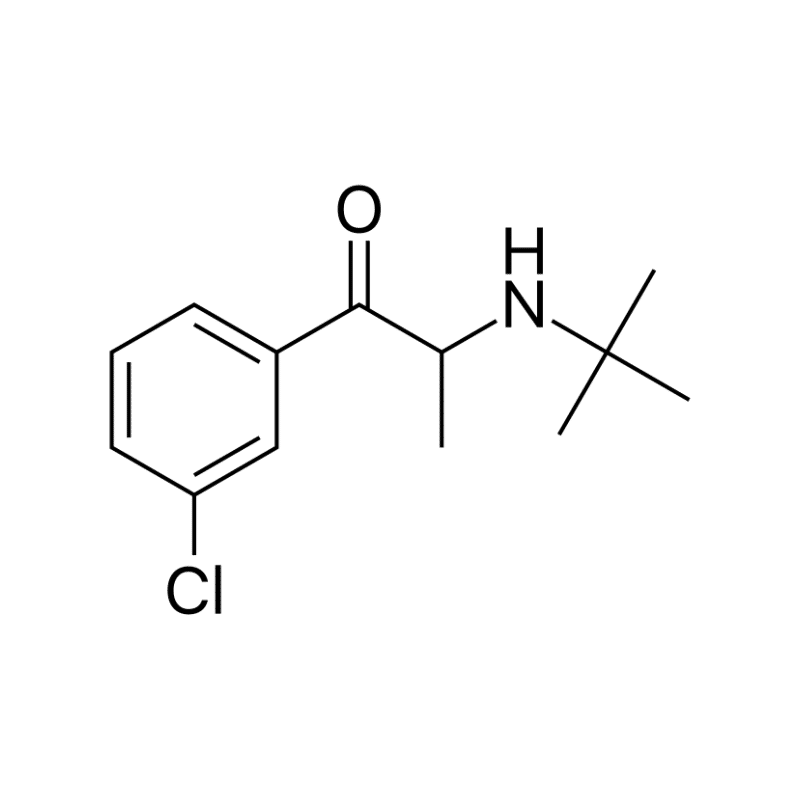
| Drug Name | Bupropion |
| Trade Names | Wellbutrin, Zyban, Bufoproban, Budeprion, Forvivo, Aplenzin |
| Classification | Atypical antidepressant |
| CYP Metabolism | CYP2B6 |
| Interaction With Kratom | Metabolic competitor |
| Risk of Interaction | Moderate |
Is It Safe to Take Kratom With Wellbutrin?
No; since kratom and bupropion directly compete for metabolism, taking these medications together for any reason is unwise.
We know that bupropion use can lead to seizures [5]. The risk is exceedingly small, but it still exists. Taking kratom alongside Wellbutrin may increase the chance of experiencing this severe side effect.
With this in mind, it’s likely not a good idea to mix kratom with bupropion.
At the very least — if you’re dead set on trying this combination — consult with your doctor first. They may be able to adapt your dose of bupropion to account for kratom and may advise you to separate the dose of each substance by two or more hours to minimize risk.
What is Bupropion (Wellbutrin)?
Bupropion is an atypical antidepressant with several key differences when compared to other antidepressants such as Zoloft or Prozac.
This medication belongs to a kind of antidepressant called aminoketones. It’s an NDRI (noradrenaline dopamine reuptake inhibitor) which is similar to SSRIs (selective serotonin reuptake inhibitors) but focuses on dopamine rather than serotonin.
Most NDRI medications have a low risk of interaction with kratom — but because bupropion is metabolized so heavily by the CYP2D6 enzyme, the risk of using this medication with kratom is higher.
Bupropion functions differently in the body than selective serotonin reuptake inhibitors (SSRIs).
Bupropion raises the levels of dopamine and norepinephrine in the body, while SSRIs work to do the same except for serotonin. In many instances, Wellbutrin can be prescribed along with an SSRI.
Although it can induce side effects — in general — bupropion is considered one of the safest choices for antidepressants. There is little incidence of misuse, and if taken properly, it does not cause physical dependence.
In 2019, Wellbutrin (bupropion) was the 22nd most commonly prescribed medication in the United States.
Bupropion is on the World Health Organization’s List of Essential Medicines.
What Is Wellbutrin Used For?
Wellbutrin is used to treat several different ailments:
- Major depressive disorder (MDD), as well as seasonal affective disorder (SAD) [6]
- Cigarette (nicotine) addiction
- Bipolar disorder and ADHD (off-label uses)
What’s the Dose of Bupropion?
Bupropion is a prescription drug. It is used to treat various conditions, and the dosage can vary depending on the treatment goal and the individual person.
Other complicating factors include the method of ingestion and the different forms of bupropion available (immediate release, sustained release, and extended-release).
These conditions mean that you should only take bupropion as prescribed by your doctor. Do not exceed the indicated dosage or use the compound for longer than the allotted time frame.
Additionally, the misuse of bupropion — either by taking an excessive dose or by snorting or injecting it — is known to cause stimulant effects like cocaine.
Generic & Brand Name Versions
Bupropion is most commonly sold under the brand names Wellbutrin or Zyban, but there are many others too.
Bupropion is sold under the following brand names:
- Aplenzin
- Budeprion
- Bufoproban
- Forvivo
- Wellbutrin
- Zyban

What Are the Side Effects of Bupropion?
Bupropion is known to be one of the best pharmacological antidepressant options because of its low incidence of side effects.
Nevertheless, this doesn’t mean that there aren’t any.
Some of the common side effects of bupropion include [7]:
- Accelerated heartbeat
- Constipation
- Dizziness
- Dry mouth
- Headaches
- Insomnia
- Nausea
- Sore throat
- Weight loss
The more rare and/or serious side effects of bupropion include:
- Anxiety
- Closed-angle glaucoma
- Muscle pain
- Seizures
- Skin rashes
- Stomach pain
- Thought disturbances
Luckily — the rate of these severe side effects is quite low.
What is Kratom?
Much like coffee and the coca leaf, kratom is a natural herbal extract derived from a plant with psychoactive properties — Mitragyna speciosa.
This tropical evergreen tree is native to Southeast Asia. Native peoples in countries like Borneo and Thailand have been using it for centuries to achieve many benefits.
Kratom is chock-full of powerful plant-based alkaloids. These naturally occurring compounds work on the body’s central nervous system to achieve either stimulant or depressive effects.
Kratom’s main alkaloids are mitragynine and 7-hydroxymitragynine.
Kratom is becoming a popular drug in the United States due to its benefits. Still, it’s also received some controversial attention since it can cause adverse side effects and symptoms of physical dependence.
Instances of fatal overdoses have been reported, but they are very rare and almost always involve other substances.

What is Kratom Used For?
The effects of kratom depend on the amount ingested.
A lower dose promotes mind-based effects like better focus and enhanced mood. Higher doses lead to more analgesic and sedative-like effects—good for pain and anxiety.
The spectrum of effects kratom provides is useful in the treatment of numerous ailments, but it can also serve just as a nootropic.
In terms of medication, kratom is popular with those experiencing chronic pain. Kratom also has anxiolytic qualities: many kratom users have abandoned their antidepressant prescriptions for kratom.
Anecdotal evidence is not strong, but we put a lot of trust in the myriad of life-changing stories that can easily be found in the kratom community.
What’s the Dose of Kratom?
The general dosage recommendations for kratom are as follows:
- Low dose (1-5g) — best used to promote the stimulant effects of the kratom plant.
- Medium dose (5-10g) — analgesic and anxiolytic properties start to become more evident.
- High dose (10-15g) — heavy sedative, analgesic, and anxiolytic qualities are to be found at this high dose. Do not consume this amount of kratom if you’re unsure as to how your body will handle it.
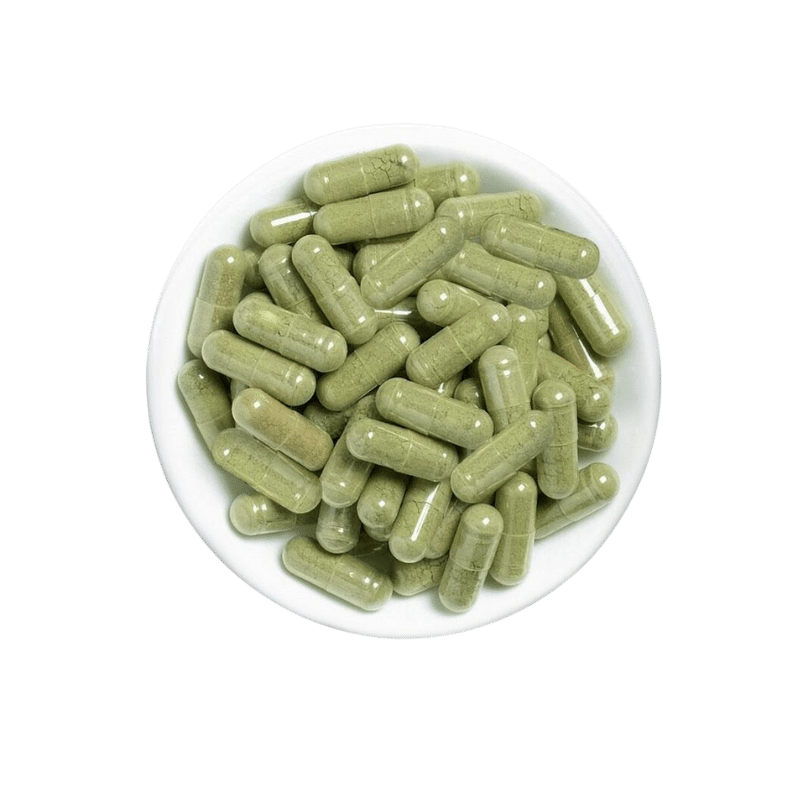
These dosage recommendations are averages and should not be treated as so.
As with most drugs, kratom affects people differently depending on various factors like age, method of consumption, and body mass. Be sure to exercise caution and responsibility when selecting your kratom dose.
Also see: How Long Should I Wait Between Kratom Doses?
What Are the Side Effects of Kratom?
Kratom’s side effects may include the following:
- Anxiety
- Brain fog
- Constipation
- Dizziness
- Headaches
- Heart palpitations
- Lethargy
- Nausea and vomiting
Due to kratom’s unregulated status, more studies are needed to better understand kratom’s adverse effects and how it interacts with other compounds.
What Are the Different Types of Kratom?
Kratom strains are named after the color of the leaf vein. These strains arise mainly from differences in the harvesting and processing of the kratom leaf.
It is speculated that these differences lead to contrasting alkaloid profiles within the kratom plant, accounting for the differences within each strain.
All strains share the same general effects. However, each strain emphasizes different properties of the plant.

White Vein Kratom
White vein kratom is ideal for those looking to enhance their mental focus or improve their mood.
Many white vein users report a boost in mental energy and creativity—making it popular for those with creative jobs.

Red Vein Kratom
Red vein kratom users typically enjoy this strain due to the pain relief it can provide and its calming, anxiolytic effects.
To trigger these effects, kratom must be ingested in medium to high doses. This makes this strain the ideal choice for those who don’t want to consume too much kratom but still want to mimic the effects of a higher dose.

Green Vein Kratom
Green-veined kratom strains are usually considered the ‘midpoint’ between white and red.
They have a more general and all-around profile, making them ideal for those who want to experience the whole suite of kratom’s benefits without becoming overwhelmed by any aspect.

Yellow Vein Kratom
White, red, and green are the main kratom types. This is because yellow vein kratom is essentially a house blend of various red and white vein kratom. Every vendor’s yellow vein kratom options are different.
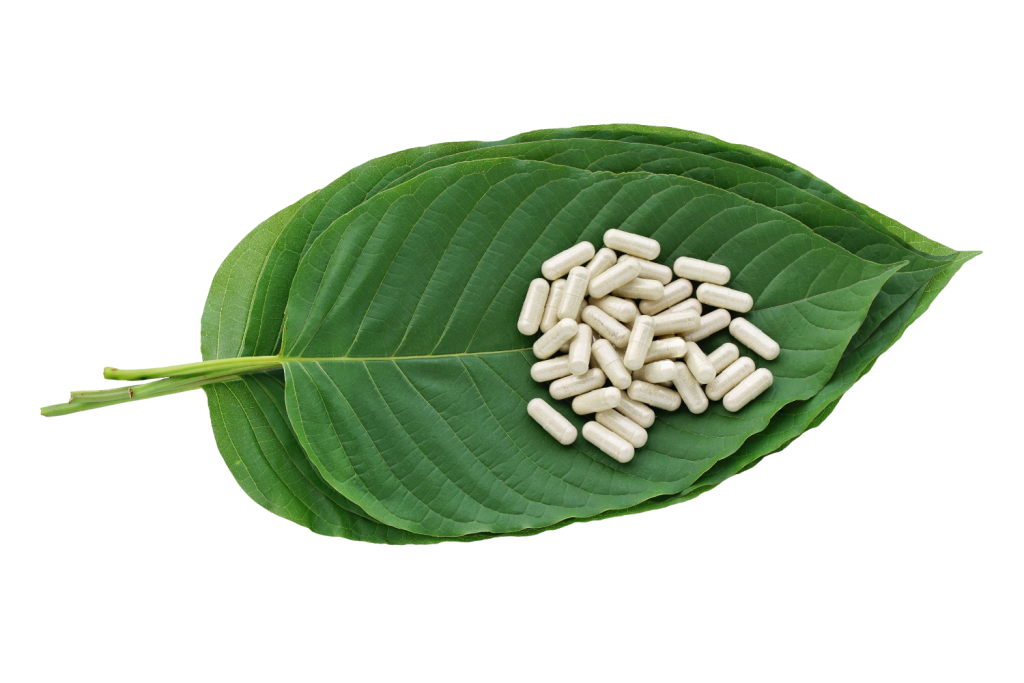
Key Takeaways: Is it Safe to Mix Kratom & Bupropion (Wellbutrin)?
Bupropion is thought of as one of the safest pharmacological antidepressants out there. It carries a much lower risk than first or second-generation antidepressants such as tricyclics or SNRI medications.
On the other hand, kratom can also function as a mood booster and is regarded as a safe compound when used appropriately.
However, yhese compounds mutually inhibit each other’s efficient metabolization, which could lead to an unhealthy accumulation in the body.
This means that if done consistently, mixing kratom and bupropion could lead to a higher incidence of side effects — particularly seizures — and toxicity.
You should consult your physician before attempting to combine kratom and bupropion.
- Fava, M., Rush, A. J., Thase, M. E., Clayton, A., Stahl, S. M., Pradko, J. F., & Johnston, J. A. (2005). 15 years of clinical experience with bupropion HCl: from bupropion to bupropion SR to bupropion XL. Primary care companion to the Journal of clinical psychiatry, 7(3), 106.
- Costa, R., Oliveira, N. G., & Dinis-Oliveira, R. J. (2019). Pharmacokinetic and pharmacodynamic of bupropion: integrative overview of relevant clinical and forensic aspects. Drug metabolism reviews, 51(3), 293-313.
- Hanapi, N. A., Ismail, S., & Mansor, S. M. (2013). Inhibitory effect of mitragynine on human cytochrome P450 enzyme activities. Pharmacognosy Research, 5(4), 241.
- Menkes, D. B., & Herxheimer, A. (2014). Interaction between antidepressants and alcohol: signal amplification by multiple case reports. International Journal of Risk & Safety in Medicine, 26(3), 163-170.
- Davidson, J. (1989). Seizures and bupropion: a review. The Journal of clinical psychiatry, 50(7), 256-261.
- Berigan, T. R. (2002). The many uses of bupropion and bupropion sustained-release (SR) in adults. Primary care companion to the Journal of clinical psychiatry, 4(1), 30.
- Huecker, M. R., Smiley, A., & Saadabadi, A. (2021). Bupropion. StatPearls [Internet].


